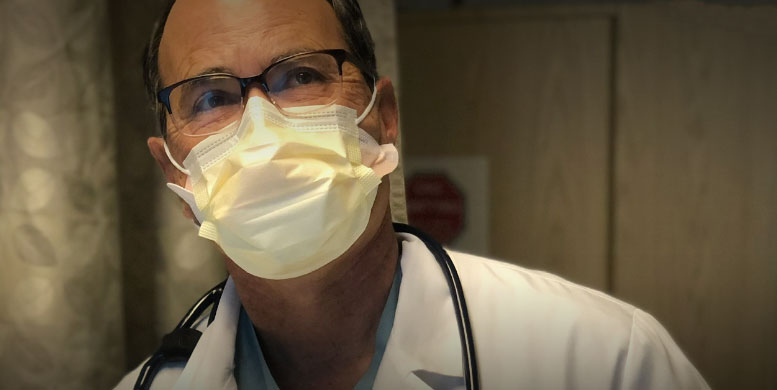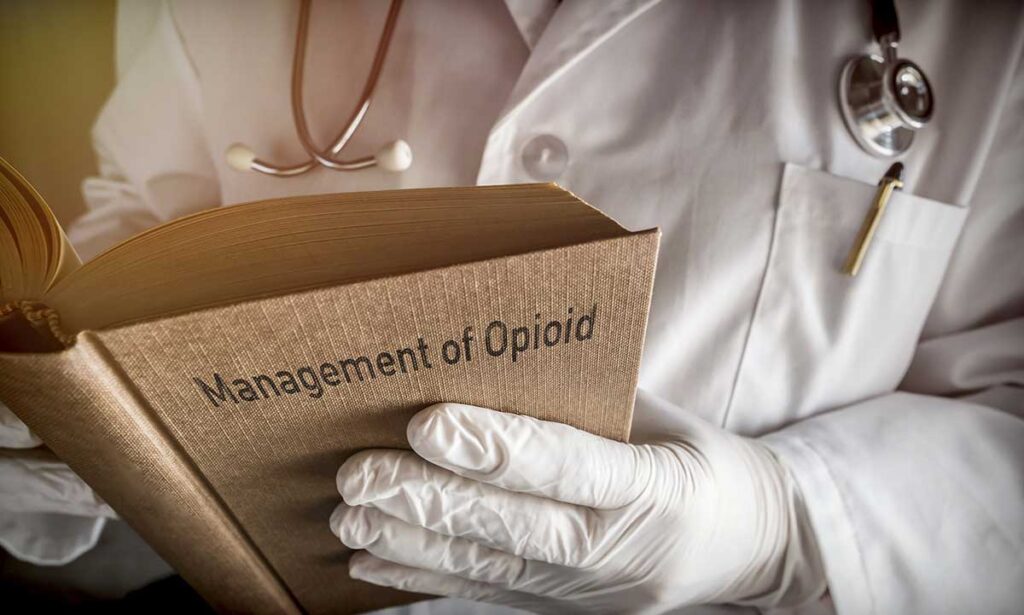Waismann Method® Rapid Detox Difference
Opioid dependence is a complex condition with a variety of factors. The experience of this condition often consists of moments of physiological and psychological relief muddled with considerable distress, forming an onslaught of emotions, leading to complete dependence. As such, embarking on the journey to recovery can be incredibly daunting for those suffering from substance abuse, making the options available seem overwhelming. Thankfully, an effective treatment program is available for those seeking freedom from their opioid addiction, known as Waismann Method Rapid Detox.
With successful medically assisted detoxification and individualized aftercare treatment, recovery is possible.
What is Waismann Method Rapid Detox?
Waismann Method is named after its founder, Clare Waismann, M-RAS/SUDCC II, a Registered Addiction Specialist and Substance Abuse Disorder Counselor. Clare strives to end the stigma surrounding those suffering from addiction by promoting treatment based on medical science, compassion, respect, and individualized care. For over two decades, the Waismann Method team has successfully implemented a superior level of detox safety to achieve the utmost effectiveness of opioid treatment options, making recovery attainable and sustainable.

Michael H. Lowenstein, MPH, M.D. – Rapid Detox Physician and Waismann Method® Medical Director
The medical treatment is led by medical director Dr. Michael Lowenstein, a quadruple board-certified M.D. and world-renowned rapid detoxification expert. Waismann Treatment addresses and manages the complexity of withdrawal symptoms that accompany substance use disorder. This is pertinent as the detox and withdrawal process preceded by the long-term use of drugs or alcohol is often the main barrier to achieving full recovery. Furthermore, withdrawing from alcohol or drugs without proper medical care can be dangerous and even life-threatening.
How Does the Waismann Detox Work?
Waismann Method Rapid Detox Center is a revolutionary approach to helping those suffering from opioid addiction. With its medically assisted detoxification and sedation program, it can help patients get through withdrawal quickly and alleviate physical cravings. It takes only a few days instead of the regular detox programs which could take much longer. Patients describe their recovery process in an environment of professionalism, comfort, and care. Moreover, what makes it much more accessible and effective is that this treatment accelerates the nervous system healing process. This method of recovery offers a chance to build strength, restore health and eventually help patients return to leading normal lives again.
Opioid Use Disorder
Opioid use disorder (OUD) is a condition relating to the continuous use of opioids. It reflects modulations in the neuro-circuitry of the brain reward system, involving numerous neurotransmitters and brain regions—psychosocial, genetic, and environmental factors all impact this condition. According to 2016 data, twelve million Americans misuse opioids; and for approximately two million Americans, misuse is significant enough to be categorized as an Opioid Use Disorder. Despite this, Opioid Use Disorder is vastly undertreated, often due to the stigma associated with the disorder, failed results, and the profound discomfort experienced in the detox during the withdrawal process.
Opioid Use Disorder requires medical care coupled with psychosocial support. Opioid withdrawal symptoms (OWS) are critical drivers behind repeated and continued opioid use. In addition to behavioral characterizations associated with Opioid Use Disorder, tolerance and physical dependence reflect complex neurobiological changes in several pertinent systems in the brain.
Opioid Dependence & Withdrawal
Physical dependence is responsible for the distressing withdrawal symptoms individuals experience upon suspension of opioids. Opioid receptors are located throughout the central nervous system and peripheral tissues. These receptors regulate endogenous and exogenous sources of opioids. Endogenous refers to the body’s natural opioids. At the same time, exogenous refers to external and synthetic opioids such as heroin, fentanyl, and morphine.
Opioid agonist activation of the presynaptic terminals of nociceptive fibers blocks the release of neurotransmitters, resulting in pain relief. In addition, the binding of opioid receptors on y-aminobutyric acid-ergic (GABA) neurons inhibits GABA release, allowing more dopamine to be released, which often manifests in euphoria.
The cessation or sudden reduction of opioid use in a physiologically dependent individual can result in withdrawal symptomatology, including physiological (somatic) and effective or psychological symptoms.
Withdrawal from opioids is a very uncomfortable, unpleasant, and often anxiety-inducing process. However, the severity and duration of opioid withdrawal symptoms vary depending on the amount and time of opioids regularly used.
Common withdrawal symptoms include the following:
- nausea
- vomiting
- diarrhea
- insomnia
- anxiety
- increased body temperature
- racing heart
- muscle and bone pain
- sweating
- chills
- high blood pressure.
Comprehensive Medically Assisted Detox
Waismann Method Rapid Detox is a medically assisted detox procedure for opioid use disorder. It involves sedation from a board-certified anesthesiologist along with FDA-approved medication administration. The anesthesiologist combines IV sedation with opioid antagonists to clear the receptor sites. Rapid detox helps to reduce and alleviate opioid withdrawal symptoms and cravings. It also blocks opioid effects in the event of relapse. Waismann Method Rapid Detoxification Center helps to reverse the effects of chronic opioid use on the nervous system. Restoring the nervous system takes time; medically assisted sedation detox facilitates this process while modulating and reducing the heightened anxiety that often accompanies withdrawal symptoms.
In addition to providing medical support, research also shows that implementing the human compassion, patience, and respect model has been shown to enhance treatment outcomes for those suffering from opioid use disorder. This approach is undoubtedly held by founder Clare Waismann RAS, a fierce advocate and seasoned professional in addiction treatment. The Waismann Method team is passionate about providing patients struggling and suffering from Opioid addiction with the most individualized, humane, and effective opioid detoxification based on their unique, individual needs.
From the perspective of addiction recovery, abstinence is the first principle. This means that we need to start from the principle that addiction is not a moral failure, but rather a disease over which we have little or no control. As such, it’s important to take inventory of our lives and see how addiction has played a role in leading us to make poor decisions.
Starting with this foundation allows us to be more compassionate with ourselves as we work through the difficult process of recovery. It also allows us to focus on making positive changes in our lives, rather than feeling guilty or ashamed about past actions.
— C. Waismann
Waismann Method Rapid Detox: A Level Above the Rest
- Before the detoxification, the Waismann Method team provides comprehensive in-hospital health evaluations. This higher level of care allows safer detoxification that meets patient health needs. It also concurrently supports emotional well-being and improves comfort.
- This detoxification must occur in a private and accredited hospital to ensure patients’ safety. The elevated level of care allows the professional staff to carefully assess the patient while identifying pre-existing medical conditions that could inhibit patient safety and treatment efficacy. The medical opioid detox, including assessment and rapid detox, occurs in a hospital at an average two to three-day stay. Rapid detox is followed by a short visit at a private recovery center dedicated to personalized treatment approaches post-detox. This is an essential component of the process toward increased treatment safety, success, and complete recovery.
- After detoxification, patients often undergo a significant physical and emotional regulation period. Accessing ongoing professional assistance during this vulnerable time is imperative for patient safety and treatment success for recovery. The recovery center following Waismann Method Rapid Detox provides comprehensive, thoughtful care needed throughout this transitional period.
What Happens After Rapid Detox?
Detoxification is an important step toward recovery but can leave people feeling vulnerable and overwhelmed. The professional inpatient care Waismann Treatment provides is crucial support when adjusting to a new lifestyle post-detox–including help regulating sleep patterns, hypersensitivity management, and gastrointestinal function.
At Domus Retreats we understand the complex hormonal imbalances raised by long-term opioid use create heightened stress which increases the risk of anxiety-related issues that often lead back to relapse cravings. That’s why our experienced team offers round-the-clock assistance during this transitional period–and nutritionally balanced meals – so your journey back has its best chance for success.
[ctatwo line2=”We know the challenges you face and the importance of creating a unique and personal experience for you right from the start.” link=”tel:1-800-423-2482″ linktext=”Call for Detox Options 1-800-423-2482″ bgurl=”https://www.rapiddetox.com/wp-content/uploads/2021/02/ctabg.jpg”]For over 26 years, people from all over the world have chosen Waismann Method as their opioid detox provider.[/ctatwo]
Integrative Care Approach
Domus Retreat, our private recovery center, is the optimal place for healing and support from a multidisciplinary team. Research demonstrates that implementing a collaborative model of care offers patients who struggle with opioid use disorder significantly higher treatment success (Burton & Martin, 2020). In addition to having around-the-clock support from a multidisciplinary team of professionals, these therapy modalities include yoga, tai chi, acupuncture, individual psychotherapy, and drama therapy. There is also an emphasis on consuming fresh, nutrient-dense, whole foods prepared by on-site professional chefs. This around-the-clock assistance immediately after rapid detox helps restore the balance needed before the individual faces the world’s vulnerabilities while being opioid-free. Ongoing research highlights the importance of this additional care and comprehensive, person-centered approach in sustaining recovery.
Movement-based therapies can provide balancing and stress reduction benefits. For example, a recent 2020 study found that breath-based yoga and movement-based yoga- both had significant reductions in salivary cortisol- as well as self-reported stress. Further stress improvements included lowered blood pressure, improved heart rate variability (HRV), and fasting glucose. These modalities also help promote parasympathetic nervous system activation, helping to get the body out of the stress response and harmonizing rest and digestion mode.
Nutritional Deficiencies and Care
Addressing nutritional deficiencies is also part of the recovery process. Not only does this help to restore the body in terms of physiological health, but mainly from a mental health perspective. Nutrition plays a vital role in influencing neurotransmitter concentrations and pathways in the brain and the gut, which has significant implications for improved mental health.
Those suffering from opioid addiction often have significantly compromised gastrointestinal (GI) functioning. This further impedes psychological health because the gut actually synthesizes several neurotransmitters. Sufficient nutrition in conjunction with the above-noted therapies helps promote healing via the gut/brain axis, which has been noted to have favorable effects regarding recovery.
Waismann Method’s attention to nutritional deficiencies is also part of the healing process. Not only does this help to restore the body in terms of physiological health, but mainly from a mental health perspective. Nutrition plays a vital role in influencing neurotransmitter concentrations and pathways in the brain and the gut, significantly impacting overall physical health, strength, and mental well-being.
Waismann Method Treatment Focus
Withdrawal symptoms from Opioid Use Disorder can lead to an array of medical complications. Therefore, a rapid detox treatment by a multi-board certified physician with over twenty years of experience congruent with Clare Waismann is pertinent in achieving a successful recovery. Waismann aims to heal, restore and ultimately transform lives affected by opioid use disorder through a highly individualized and effective treatment protocol.
Waismann Treatment™ has consistently maintained superior detox results by delivering personalized medically assisted withdrawal management while concurrently emphasizing patient safety and comfort. Research demonstrates growing evidence for the effectiveness of medically managed detox treatment. Despite this, most addiction treatment facilities do not offer in-hospital medically assisted detoxification or individualized aftercare specifically tailored to each patient.
Waismann Method team offers a comprehensive, results-based treatment protocol for sustained recovery from opioids, along with their post-detox recovery treatment that addresses both the body and mind. As a result, the Waismann Method® team provides the safest, most comprehensive, and adequate medical detox available.
Waismann Method Locations
Waismann Method can “only” be found in Southern California. Therefore, we have concentrated all our efforts and resources on one location where patients receive a team with unparalleled rapid detoxification experience, comprehensive medical care, and superior results.
Sources:
-
- Key Substance Use and Mental Health Indicators in the United States
- Opioid withdrawal symptoms, a consequence of chronic opioid use and opioid use disorder: Current understanding and approaches to management
- Opioid Overdose and Addiction Treatment: A Collaborative Model of Compassion, Patience, and Respect
- Hypothalamo-Pituitary-Adrenal axis and Brain during Stress, Yoga, and Meditation
- The Role of the Gut Microbiome in Opioid Use
- Inpatient versus Other Settings for Detoxification for Opioid Dependence








